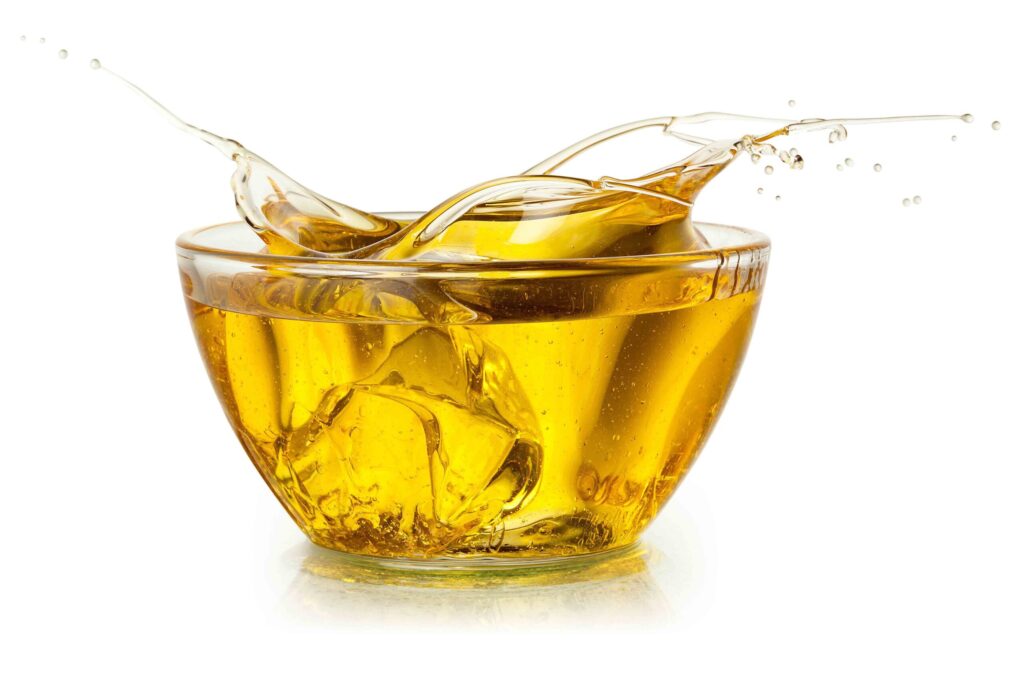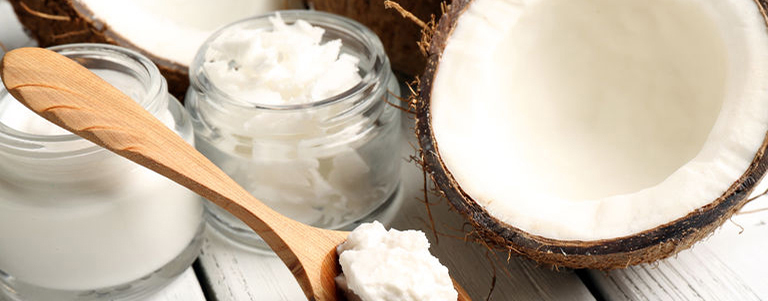The quality of the products we carry is our priority.
Bill has been in the edible oil business for a long (long) time. He can tell you just about everything you want to know about oils- where they come from, when they started getting popular, how much they “used” to cost, why they are good. He is a wealth of knowledge and cares deeply that our customers receive the best possible products. When you have great ingredients, you have excellent products.
One trigger in the natural/organic world is RBD (refined, bleached and deodorized). RBD elicits images of these beautiful plant oils being run through a vat of bleach and all the goodness being stripped right out. There are manufacturers out there that do use harsh chemicals to refine their products, but there are other ways of creating RBD products. Here is a little information about how our organic coconut oil and organic extra virgin coconut oils are processed.
There are really basically 3 types of Coconut Oil that are on the market (excluding things like MCT oil or Fractionated Coconut Oil that go through other processes and are marketed differently). Those are:
• Non-Chemical RBD Organic Coconut Oil. May also be called Refined Coconut Oil, but process is basically the same.
• Virgin or Extra Virgin Organic Coconut Oil (dry process)
• EV or Virgin Coconut Oil (wet process).
Organic Coconut Oil is RBD and is indeed organic. Organic refining is different than conventional refining because it doesn’t use harsh chemicals like lye to remove impurities. In organic refining, the first step uses citric acid to remove impurities and trace metal ions that would otherwise cause more rapid oxidation of the oil. Then, the oil is filtered through activated carbon and a filtration aid (basically a fine, inert powder) which removes more impurities and color/pigment compounds. Finally, it is steam deodorized at high temperature and vacuum to remove scent/flavor compounds as well as impurities like free fatty acids and peroxides that are present in the unrefined oil. The activated carbon and citric acid are approved process aids under organic regulations, and are also separated and/or filtered out. So, this product absolutely is certified organic. The RBD Coconut Oil is certified Organic, just not in the 100% organic category because of the use of the process aids; citric acid and activated carbon, and filter aid powder. Since these process aids are removed we generally advise that the Organic Coconut Oil RBD can be considered/calculated as 99% organic, although it’s more like 99.999%. Organic Coconut Oil is white in color and has the coconut flavor/smell, although not nearly as strong as the Extra Virgin Organic Coconut Oil.
Extra Virgin Organic Coconut Oil (dry process)-This product is not refined. The process for this is steam blanching of the fresh coconut meat followed by shredding and oven drying. The dried coconut is then expeller pressed, goes through multiple progressively finer filtering steps, and is packaged. That’s the whole process. The EV Coconut Oil is considered 100% Organic under NOP organic regulations since there are no other additions. It is pure coconut. Organic Extra Virgin Coconut oil is white in color and has a delightful coconut smell and taste. You can see and feel the difference between organic and extra virgin organic coconut oils but if you do not want any coconut smell or taste then regular organic coconut oil is the one you will want to use.
Extra Virgin Coconut Oil (wet process)-This is also called centrifuge process by some providers. In this process, the coconut is not dried. The coconut is pressed while still wet and then the wet oil slurry is centrifuged to separate out the water phase. This process is favored by those who want to label the coconut oil as Raw since it doesn’t go through the high temp oven drying step. We do not carry this EV Organic Coconut oil at this time due to the higher moisture that we’d be concerned about microbial growth and more rapid onset of rancidity.
Unlike in Olive Oil where the terms Virgin and Extra Virgin are rigidly defined under international agreements, there are no such legal definitions for Virgin or Extra Virgin in Coconut Oil. So really, any unrefined coconut oil can be described as either Virgin or Extra Virgin. We choose to use the term Extra Virgin.
MCT or Fractionated Coconut oil are not the same a traditional coconut oils. Most MCT oils are actually palm derived. MCT/Fractionated Coconut Oil is in liquid form and does not smell or taste like coconut at all.






